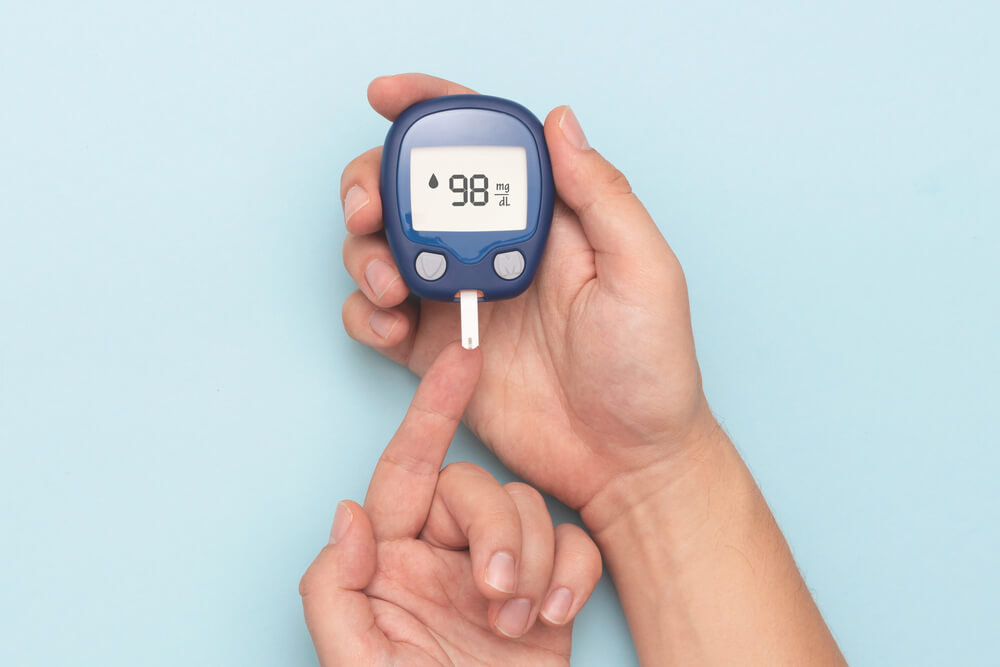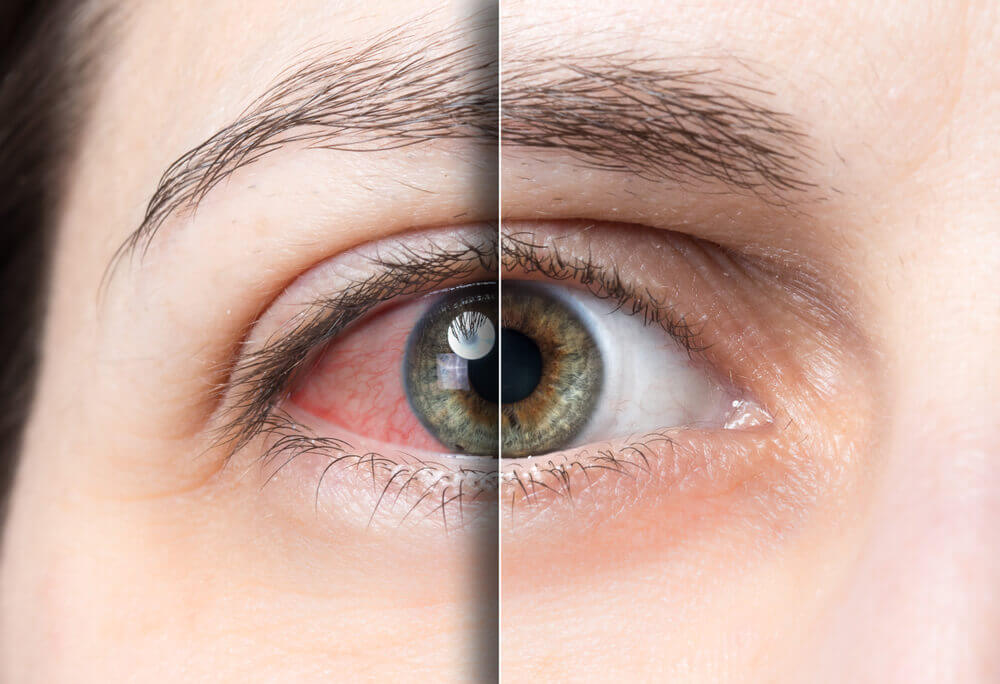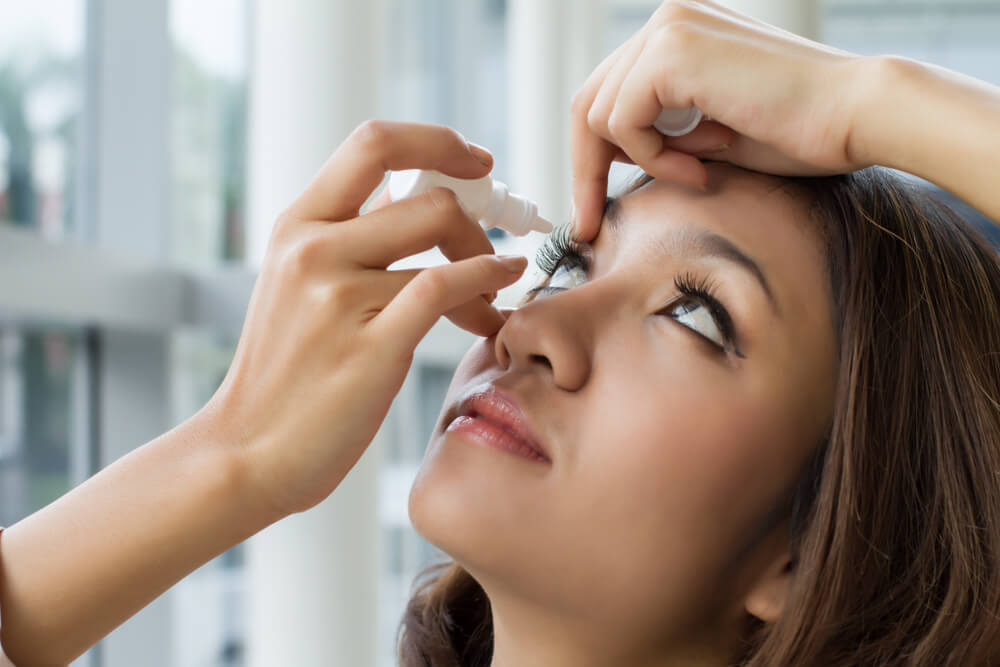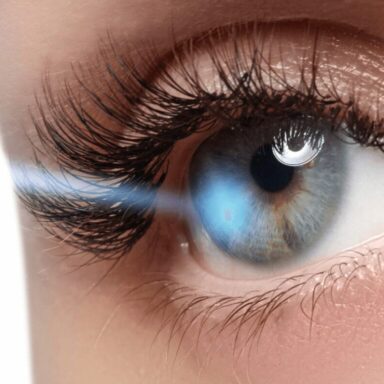When you think of diabetes, eye care may not be the first thing that comes to mind. But did you know that diabetes can cause several eye conditions, including dry eye?1
It is thought that many people with diabetes may also have dry eye.2 The good news is that if you have diabetes and dry eye, there are lots of things you can do to make your eyes feel better.
Here, we’ll have a quick look at why dry eyes are linked to diabetes. Then, we’ll give you lots of information on how to manage dry eyes, from the small lifestyle changes that can help keep you feeling and looking your best, to the best ways to get relief from symptoms, fast.
Did you know?
You are twice as likely to have dry eye disease if you have type 2 diabetes, – the kind that usually develops in middle-age – than if you have type 1 diabetes – the less common form of diabetes which often starts in childhood.10
What is diabetes and why does it affect the eyes?

Diabetes is very common and so the chances are you’ll know someone with it. It’s estimated that almost five million people in the UK have the condition,3 which affects how the body turns food into the energy it needs.
In the US, 38 million people – that’s around one in ten – have diabetes.4
There are different types of diabetes but what they have in common is high levels of blood glucose – sugar that’s in the bloodstream, rather than hidden away inside cells.
Over time, this sugar can damage the network of blood vessels and nerves that criss-cross the body, including those in the eyes.5
Diabetes can lead to dry eyes when the nerves that help you make tears are damaged so you produce less tears than usual. If you have diabetes and your eyes are often red, itchy and sore you’re not alone. Dry eye is commonly seen in people who have type 1 and type 2 diabetes.1
Are my dry eyes a sign of diabetes?
Lots of things in our everyday lives can trigger dry eye. Anything from sitting next to the air conditioning vent (very tempting in the heat of summer!) to smoke getting in your eyes as you party the night away, can make your eyes dry.6
If your symptoms don’t go away after a couple of days, this is a tell-tale sign that your dry eyes may be caused by diabetes or another medical condition and you should speak to your GP.1
What is dry eye?

As its name suggests, dry eye is a condition where the eyes are drier than they should be. This can be because they don’t make enough tears or the tears evaporate too quickly.7
Sometimes it’s called dry eye disease or dry eye syndrome, which can sound confusing, but these are just different names for the same condition.
Most cases are mild but, very rarely, the dryness can cause permanent damage to the surface of the eye.8 Either way, it’s good to know the signs and symptoms of dry eye, especially if you have diabetes.
Symptoms of dry eyes
The symptoms of dry eye usually affect both eyes and can include:9
- Itchiness
- Redness
- A burning sensation
- Watery eyes
- Heavy feeling eyes
- Blurry vision
- A gritty feeling
- Sensitivity to light
- Eyestrain
How to treat dry eye caused by diabetes

The signs and symptoms of dry eye may sound rather nasty but there are lots of things you can do to provide your eyes with the relief they crave.
A lot of people with dry eyes caused by diabetes find that managing their blood sugar levels helps with their dry eyes.1 Your GP or diabetes specialist will be able to tell you more about this.
You may also want to try topping up your tears.11 Eye drops, such as Cationorm®, can replenish your body’s supply of tears, rehydrate and quickly relieve discomfort, particularly if your symptoms are mild.
And there are lots of small changes you can make to your lifestyle that will help stop your tears from drying up too quickly. Tips to make the most of your own tears include:

- Take regular breaks from your computer screen – set a timer if you find it hard to tear yourself away from your work.12
- If your make-up is irritating your eyes, try switching to hypoallergenic products.13
- Stop smoking if you smoke and remember that second-hand smoke can irritate the eyes too. 14
- Stress may be linked to dry eyes, so take some time out to give yourself a spot of pampering – go on, you deserve it!.15
Top tip
Why not try giving your dry eyes some TLC? Warm compresses16 and eyelid massages can help soothe sore and itchy eyes.
It’s important to note that these won’t work for everyone. Experiment, find out what works for you and your lifestyle, find a routine and be persistent – these things often take time.
Is dry eye the only eye condition to watch out for if I have diabetes?
Although we’ve focused on dry eye here, diabetes can lead to several other eye conditions, including diabetic retinopathy.
This occurs when the high levels of sugar in the blood damage the delicate blood vessels in the retina, the light-sensitive layer at the back of the eye. If left untreated, it may cause sight loss.
Fortunately, diabetic retinopathy usually develops gradually and, if caught early, treatment can help reduce or prevent vision loss.17
Although you are unlikely to notice any symptoms early on, early signs can be picked up during the regular eye checks that are recommended for people with diabetes.
You can reduce your risk of diabetic retinopathy or stop it from getting worse, by managing your blood sugar, blood pressure and cholesterol levels and attending your diabetic eye screening appointments.17
Important
Some people do notice signs of diabetic retinopathy early on. If you start to see floaters (wispy cloud-like shapes floating in and out of your vision), if your vision dims, so that it seems as if you have sunglasses on all the time, or if you are struggling to see in the dark, see your doctor straight away.18
What about styes?
These tender red lumps on the very edge of the eyelid form when a tiny oil gland near the eyelashes gets infected and are more common in people with diabetes.19 Styes can be very painful, not to mention unsightly, but hang on in there because they usually clear up on their own in a week or two.20




